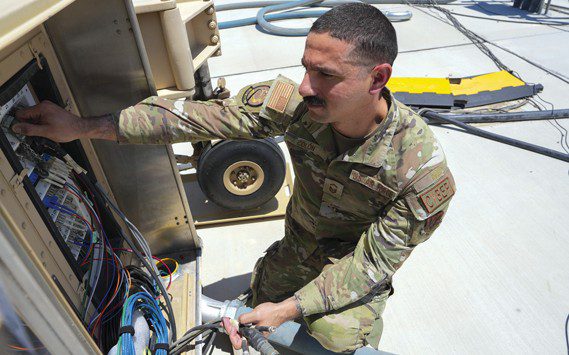For many families, a dual-income household is needed to get by, but that’s a challenge when one of those earners is a service member.
The cost of things like education and housing have gone up greatly in the past 50 years, compared to the value of the dollar, meaning things are more expensive now than they were in the past, said Holly Petraeus, the former assistant director for Service member Affairs at the Consumer Financial Protection Bureau, during a panel discussion today at the Brookings Institute in Washington.
“Can the single income family really still do it anymore, and if they can’t … given the need for two incomes in military families and the challenges that presents to military spouses, is this changing the nature of today’s military families?” Petraeus said.
Mike Haynie, the executive director of the Institute for Veterans and Military Families at Syracuse University, said spouse unemployment, and the financial burden it brings, has already changed military families.

“Today, military families are more and more less likely to recommend military service to their children than they were as recently as five years ago,” Haynie said. “That should tell us something and it should scare us.”
Haynie also said that today, about a third of military spouses aren’t living in the same location as their military service member, likely for financial reasons.
“There is not enough research being done as to the issues, questions, concerns impacting this community, certainly from an economic perspective,” he said. “Undoubtedly, we are in a position where … the stability and the health for those families is compromised as a function of the economic situation they face today.”

He also said unemployment for military spouses is higher than for their civilian peers, as is underemployment.
Elizabeth O’Brien, the senior director of the Hiring Our Heroes Military Spouse Program at the U.S. Chamber of Commerce, said military spouse unemployment was at 30% in 1985 — and not much has changed in the last 30 years.
“Why is the needle not moving?” she asked, adding that when veteran unemployment was a problem in the U.S, the nation rallied to address the problem. Today, she said, the U.S. is at a historic low for veteran unemployment.
“Dual income families are part of American life and we need that same access and opportunity,” she said. “If we intend to keep our best and brightest service members in the military … we have to provide an opportunity for military families to have economic stability.”

That means, she said, that military spouses need more opportunities to be able to work.
“We have to find ways to put military spouses to work so that our families, not only are we retaining them, but when the service member transitions we are now going from two salaries to one salary, not from one salary to zero,” she said.
Marcus Beauregard, director of the State Liaison Office within the Defense Department, said military families, like families in the civilian community, increasingly need a dual income to survive. If military service proves an impediment to that survival, he said, a family may opt to discontinue that commitment.

“It’s a family decision,” he said. “It’s almost an axiom now: we recruit the service member, we retain the family. I think the last statistic I saw was something like 65% of families make that determination around the kitchen table. And it’s a determination of what are we going to do next?”
The Defense Department, he said, is increasingly seeing spouse unemployment as critical to maintaining military readiness.
“The Department is very cognizant of that and sees that as an important part of the strategy to maintain lethality,” he said, adding that Defense Secretary Dr. Mark T. Esper said taking care of families would be part of the national military strategy.












